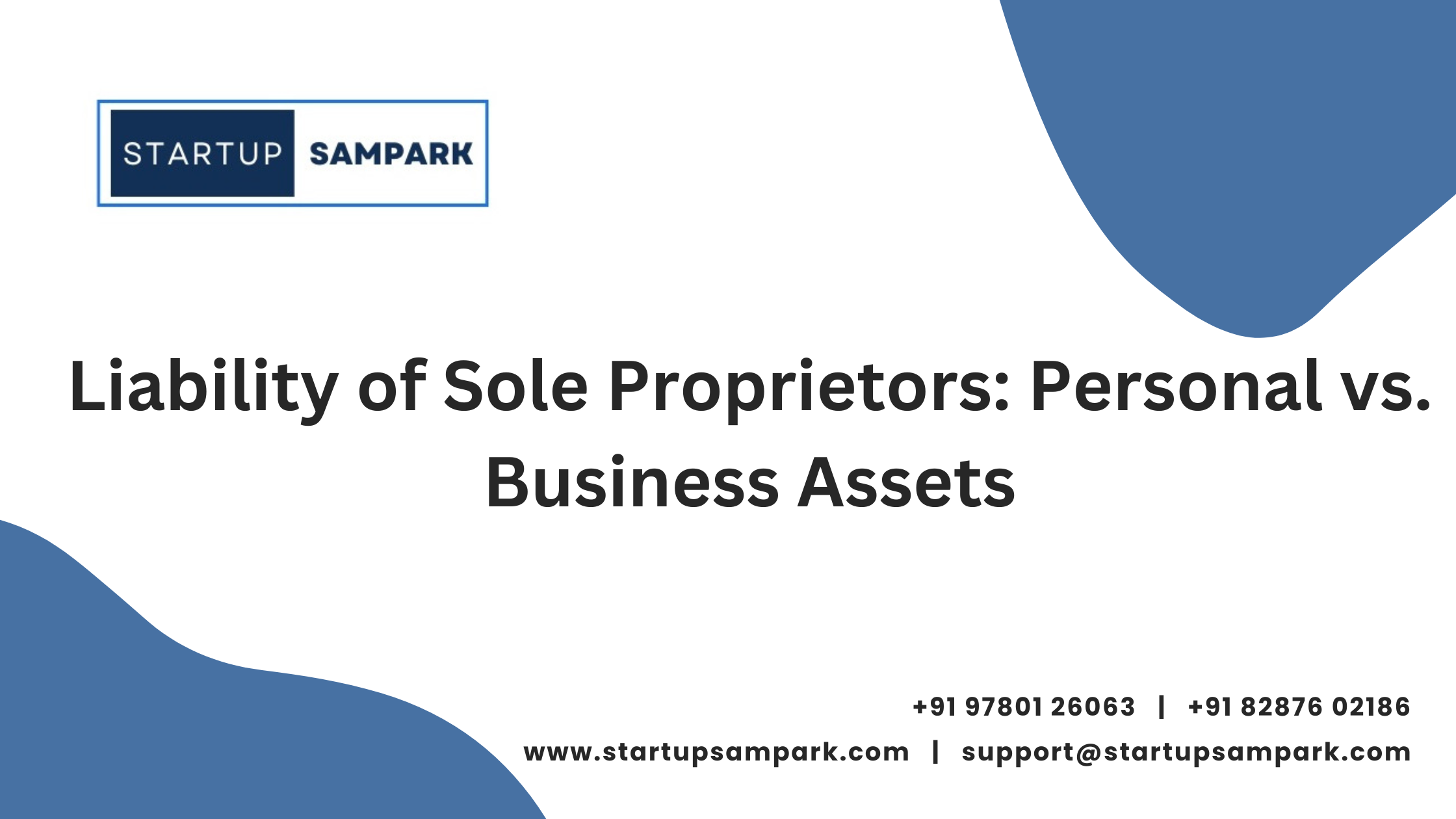Liability of Sole Proprietors: Personal vs. Business Assets
Introduction to Liability in Sole Proprietorships
One of the defining characteristics of a sole proprietorship is the legal relationship between the business and the owner. Unlike other business structures, such as private limited companies or partnerships, a sole proprietorship does not create a distinct legal entity separate from its owner. As a result, the owner assumes full responsibility for the liabilities and obligations of the business. This means that in the event of business debts, lawsuits, or financial losses, the proprietor is personally liable, and their personal assets may be at risk.
Unlimited Liability and Its Implications
In a sole proprietorship, the concept of unlimited liability means that the owner is personally accountable for the financial obligations of the business. If the business incurs losses, faces lawsuits, or accumulates debts that it cannot pay, the proprietor’s personal assets—such as their home, bank accounts, or personal property—can be used to settle the business’s obligations. This contrasts sharply with other business structures, like private limited companies, where the liability is limited to the capital invested in the company. The owner’s personal financial security, therefore, is directly tied to the financial health of the business.
-
 Startup Registration (DPIIT Recognition)₹8,850.00
Startup Registration (DPIIT Recognition)₹8,850.00
Personal and Business Assets: A Blurred Line
Since there is no legal separation between the business and the proprietor, personal and business assets are treated as one. For example, any money earned by the business becomes the personal income of the owner, and the owner’s personal finances, including creditworthiness and liabilities, can influence the business’s ability to secure loans or other forms of credit. In a sole proprietorship, the mixing of personal and business funds is common, and this lack of segregation can lead to complications if the business faces financial troubles, as there is no clear demarcation between the two.
Risk of Losing Personal Assets
The most significant disadvantage of unlimited liability in a sole proprietorship is the potential risk to personal assets. If the business fails or encounters significant financial challenges, creditors can go after the proprietor’s personal belongings to recover the outstanding debts. For example, if a sole proprietorship takes out a loan and is unable to repay it, the lender can seize the proprietor’s personal assets, including property, savings, and even vehicles, to satisfy the debt. This makes sole proprietorships risky for entrepreneurs who have significant personal assets they wish to protect.
Insurance and Legal Protections
While there is no legal separation between personal and business assets in a sole proprietorship, there are steps the proprietor can take to protect themselves. One option is to secure business insurance, such as liability insurance or professional indemnity insurance, which can help mitigate the financial risks associated with lawsuits or business debts. However, even with insurance, the proprietor is still personally liable for the business’s financial obligations, and insurance coverage may not always fully protect personal assets in the case of major losses or legal claims. Additionally, certain types of insurance may be mandatory for businesses operating in specific sectors.
Strategies for Managing Liability Risks
Sole proprietors can adopt several strategies to manage and minimize the risks associated with unlimited liability. These strategies include maintaining a solid cash flow and financial cushion to cover potential debts, separating personal and business finances as much as possible to maintain clarity, and considering business structures with limited liability options, such as a limited liability partnership (LLP) or private limited company, if the business expands. These structures provide a legal buffer between personal and business assets, reducing the personal financial risk associated with business operations. While a sole proprietorship remains a simple and cost-effective option for small businesses, managing liability effectively is crucial for the long-term success and financial security of the owner.
Startup, India
-
 Startup Registration (DPIIT Recognition)₹8,850.00
Startup Registration (DPIIT Recognition)₹8,850.00















Post Comment